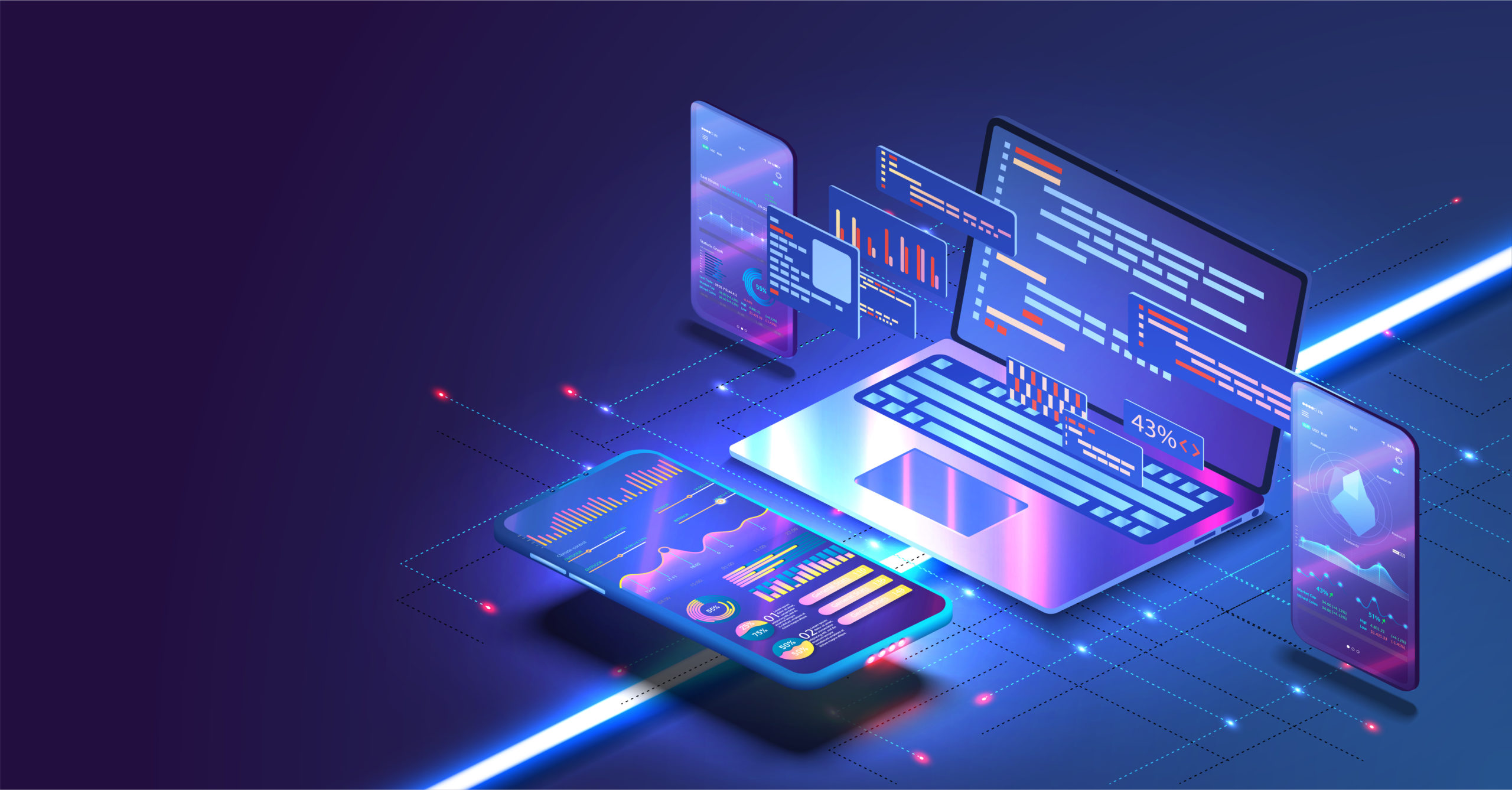Why Application Transformation is Pivotal for Legacy Systems
Application transformation facilitates business agility, improves the customer experience, and positions companies as leaders in their industry. Modernizing legacy systems improves a company’s bottom line while eliminating the inefficiencies and support issues that plague these outdated systems.
This article aims to explore application transformation and why it is key to remaining competitive in the digital age.
Common Pitfalls of Legacy Systems

Legacy systems pose challenges that are difficult to overcome. Costs, compatibility issues, and more put companies in a constant battle to keep up with the competition and remain relevant.
Security
When it comes to legacy systems and data breaches the question isn’t “if” but “when.”
Many legacy systems are at the end of their support cycle with their vendor—meaning the vendor no longer provides help. Without someone on staff who knows the system, updates rarely happen. Even if there is someone who is familiar with the system, they may often be busy with other projects.
Without proper updates, legacy systems are prime targets for hackers and cybercriminals who seek out and exploit weak points in a system. With a legacy system that isn’t updated, these weak points are easily identified.
When a legacy system suffers a data breach, the company may face fines from regulatory agencies, possibly costing companies millions of dollars in fines and lost revenue due to customer churn.
Compatibility Challenges
Outdated systems don’t integrate well with modern technology. Antiquated platforms may lack user-friendliness or aren’t compatible with mobile phones—which could affect many of your end-users or clients in today’s digital age. According to Statista, 22% of survey respondents said that they spend three to four hours on average on their phones daily. Failing to meet these needs means losing significant opportunities to competitors that are actually meeting user expectations.
Maintenance
Do you have the tools and resources in your tech stack to support a legacy system? Chances are, you don’t.
As a result, you may need to pay the vendor for the tools you need. But, most legacy systems are at the end of their support lifecycle, which means the tools you need might not be available.
If the vendor is willing to provide support, they will likely charge a premium. In that scenario, you may consider relying on in-house resources. The downfall here is that your developers will still need to go through a cumbersome process of developing modern solutions for something that is outdated. Cost
It’s no secret that legacy systems are a financial burden.
As we’ve mentioned, these systems require all-hands-on-deck from developers who know how to maintain the software. Given the specific skill set required, you may need to pay a premium salary to hire someone. Not only that, this person’s expertise may not be a match for other projects, preventing you from maximizing your investment in this resource to help with other efforts.
Legacy systems are also notorious for business continuity and reliability issues. Outdated software is prone to “crash” more than newer technology. Keep in mind that unplanned downtime cost companies both customers and money.
Another item that eats away at profits is maintaining the hardware for the application. Outdated hardware is difficult to find and can cost companies more to locate a replacement when something goes wrong.
Why Implement an Application Modernization Strategy?

Despite these challenges, you might be tempted to simply “deal with it” rather than upgrade. If you do, you will miss out on a host of benefits that impact your bottom line. Let’s explore further.
Operational Efficiencies
Modern systems are more reliable than legacy apps. Workload spikes can bring legacy software to a halt while updated systems use the latest tools and technology to operate at peak performance.
For example, modern applications in a cloud environment scale efficiently. The cloud vendor automatically allocates more memory, processing power, and storage as workload increases. These types of system efficiencies make for a positive customer experience in the system.
Lastly, modernization increases developer productivity. When a developer isn’t struggling to maintain an outdated system, they have the ability to devote more time to value-added tasks.
Maintain a Competitive Advantage
Application modernization helps companies maintain a competitive advantage.
Modernization enhances a company’s reputation by demonstrating your commitment to innovation. Updating your systems shows customers that you care about their needs and are continuously trying to meet their expectations. When customers are happy with the system, they are more likely to remain loyal to your brand.
Adapt to a Changing Market
Is your company ready to meet current market and customer demands? Do your competitors offer newer similar software that performs better than yours? If so, will you lose customers? Your answers to these questions will paint a clear picture of where you stand with your systems.
Legacy systems are a barrier to agility, making outdated applications harder to update with new features.
Writing custom code to meet these requirements takes too long. In this fast-paced digital landscape, competitors leverage cloud technology to add a new feature in as little as a couple of days. Companies using a DevOps process can release feature updates several times per day. By the time a company releases a new feature for a legacy application, its competitors are already far ahead.
When you update your systems, it shows your willingness and ability to adapt to market changes. Your customers and competitors will see you as a knowledge leader in the industry.
Stay Relevant for Current Users
In today’s digital-first environment, customers expect outstanding user experiences. They expect companies to wow them with the latest technology. According to an eMarketer survey, 94% of customers are more likely to buy from companies that provide a great customer experience. Application transformation empowers companies to create more appealing, user-engaging, and immersive customer experiences.
Application transformation gives companies integration capabilities that legacy systems may not be able to withstand to remain relevant. Integration is important for companies to create new customer experiences by combining functionality from multiple systems.
Start the Digital Transformation of Existing Applications With KMS Technology
At KMS, we help companies transform their legacy systems into the modern technology needed for success.
Our teams help you get the most value out of your application transformation efforts to save money, improve the customer experience, and adapt to changing market conditions. Schedule a consultation to discuss your legacy system modernization needs.







